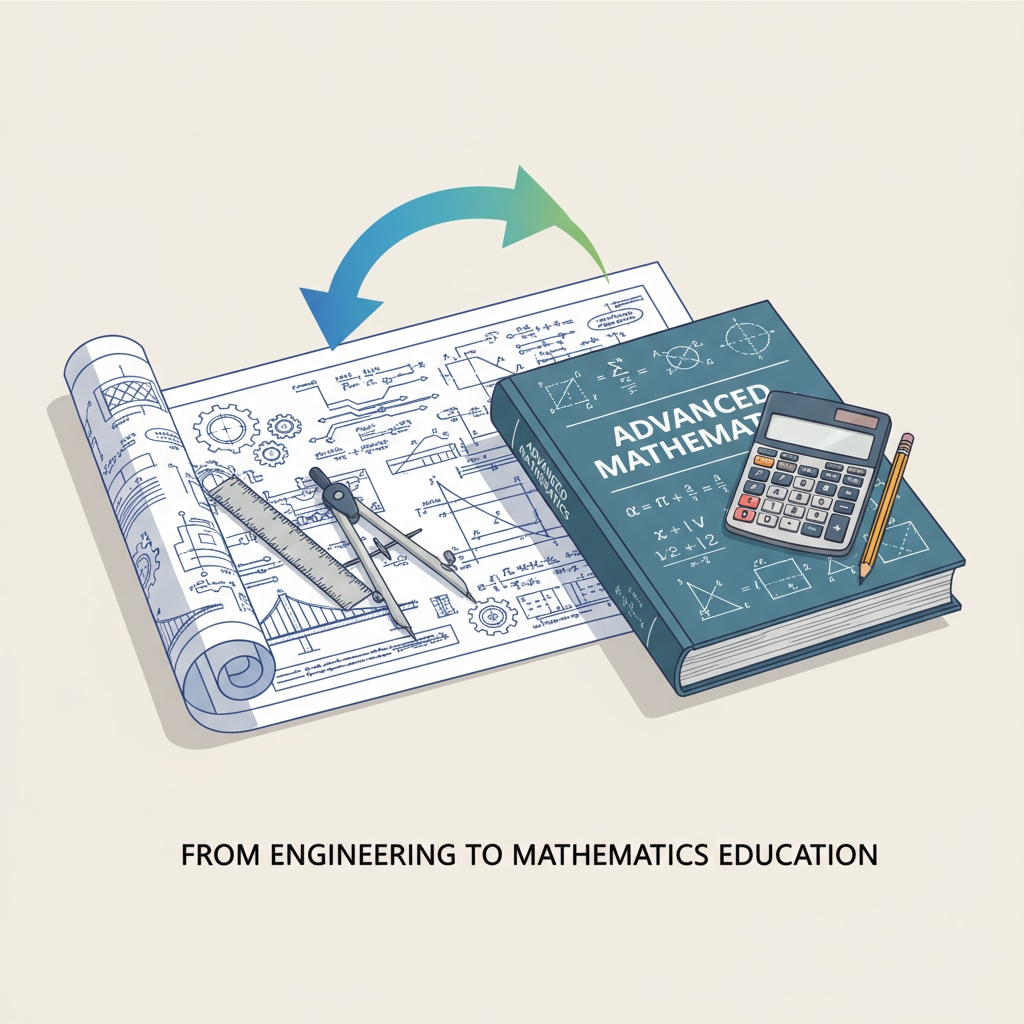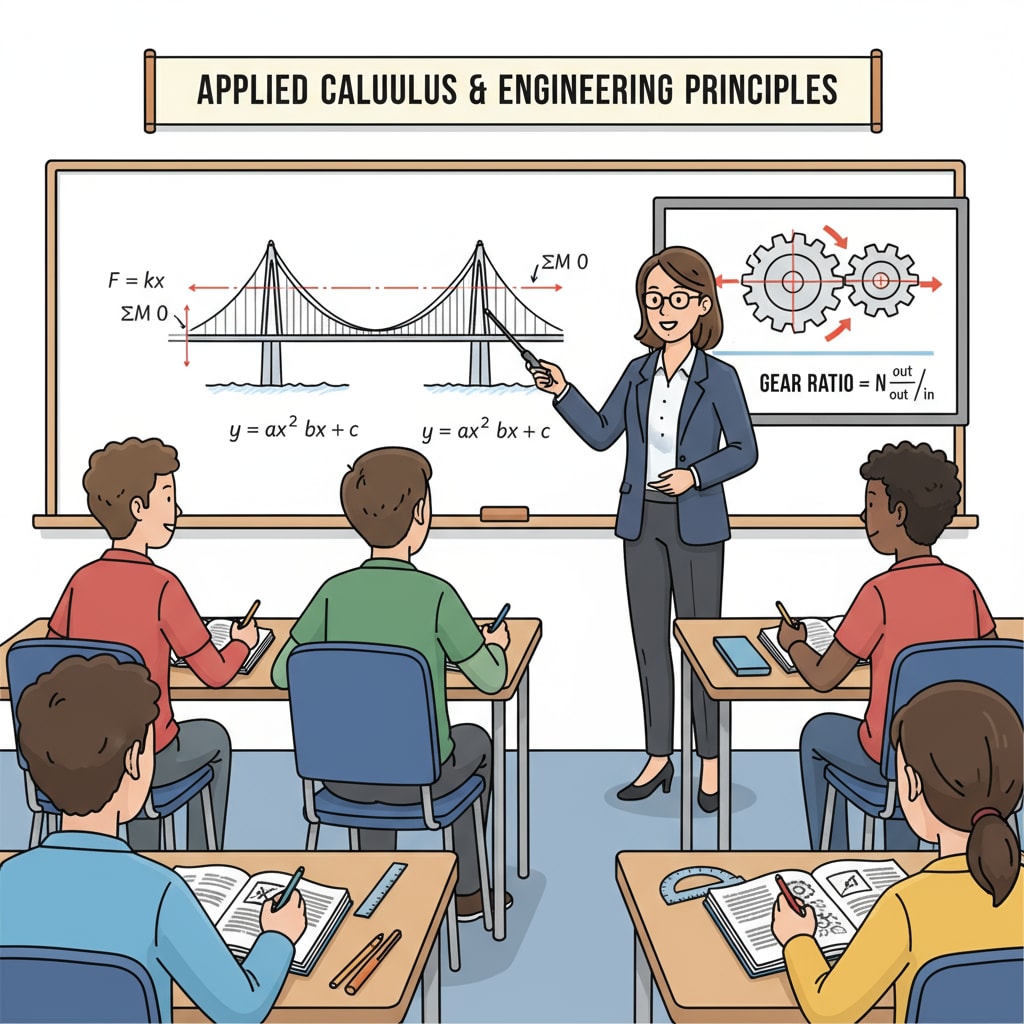Engineering Degrees, Math Education, and Career Transitions are topics of great interest to many students who find themselves at a crossroads. For those with an engineering degree but a passion for education, the idea of moving into math teaching can be both exciting and daunting. This article will explore the feasibility of such a transition, offering insights and practical steps for those considering this career shift.

The Appeal of a Career Shift
Many engineering students discover that their true calling lies in education, specifically math education. The reasons for this shift can vary. Some may find that the fast-paced, often high-pressure environment of engineering doesn’t align with their long-term goals. In contrast, the world of education offers a more fulfilling and stable career path. According to Britannica, education is a field that allows individuals to make a positive impact on the lives of others. For engineering graduates, the opportunity to share their knowledge and love for math with students can be incredibly rewarding.
The Advantages of an Engineering Background
Engineering graduates possess a unique set of skills that are highly valuable in the field of math education. Firstly, their strong foundation in mathematics is a significant advantage. Engineering programs typically require advanced math courses, such as calculus, differential equations, and linear algebra. This in-depth knowledge allows them to teach math concepts with a level of expertise that can inspire students. Secondly, engineers are trained to think critically and solve complex problems. These problem-solving skills can be effectively transferred to the classroom, helping students develop their own analytical abilities. As stated on Wikipedia, engineering education emphasizes hands-on learning and real-world applications, which can bring a practical perspective to math teaching.

Another advantage is the ability to relate math to real-world scenarios. Engineers are constantly applying math in various projects, from designing structures to developing software. This practical experience can make math more relatable and engaging for students. By using real-life examples from engineering, teachers can help students understand the importance and relevance of math in everyday life.
Overcoming Challenges in the Transition
However, the transition from engineering to math education is not without its challenges. One of the main hurdles is obtaining the necessary teaching credentials. In most regions, teachers are required to have a teaching certification or license. This may involve taking additional courses in education theory, pedagogy, and classroom management. Additionally, engineering graduates may need to adjust their teaching style to suit the needs of students. Unlike the technical and specialized nature of engineering, math education requires a more accessible and engaging approach.
To overcome these challenges, individuals can consider enrolling in alternative teacher certification programs. These programs are designed to provide a streamlined path for individuals with non-education backgrounds to enter the teaching profession. Additionally, seeking mentorship from experienced math teachers can offer valuable insights and guidance during the transition process.
Career Transition Strategies
Developing a clear career transition plan is essential. Start by researching the specific requirements for math teaching in your area. This includes understanding the necessary certifications, degree programs, and job prospects. Networking is also crucial. Attend education conferences, join professional teaching organizations, and connect with other math teachers. This can help you stay informed about job opportunities and gain valuable advice from those in the field.
Building a portfolio of your teaching experience is another important step. This can include lesson plans, student evaluations, and any teaching-related projects you have worked on. A strong portfolio can demonstrate your teaching skills and commitment to education, making you a more competitive candidate in the job market.
Resources for the Transition
There are numerous resources available to support engineering graduates in their transition to math education. Online courses and educational platforms offer a convenient way to gain knowledge in education theory and teaching methods. Universities and colleges often provide professional development programs specifically designed for career changers. Additionally, educational organizations and associations can offer valuable resources, such as scholarships, grants, and networking opportunities.
In conclusion, the transition from an engineering degree to a career in math education is indeed feasible. With the right skills, determination, and resources, engineering students can successfully make this career shift. The unique advantages of an engineering background, combined with a passion for teaching, can lead to a fulfilling and rewarding career in math education. So, for those considering this path, take the first step and explore the possibilities that await.
Readability guidance: The article uses short paragraphs and lists to summarize key points. Each H2 section provides a list of relevant information. The passive voice and long sentences are kept to a minimum, and transition words are used throughout to enhance the flow of the article.


